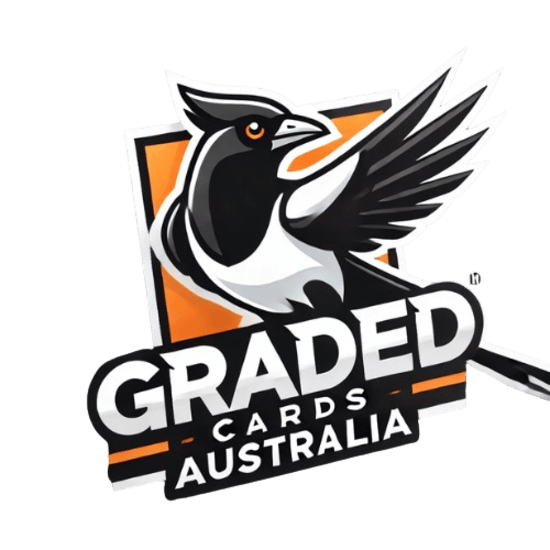When investing in sports cards or rookie cards, the grade of the card is one of the most critical factors that determine its value. For the highest return on investment (ROI), PSA 10 graded cards are the gold standard. A PSA 10 grade signifies a card in "Gem Mint" condition, meaning it is essentially flawless in terms of centering, corners, edges, and surface. Due to their pristine condition and high demand among collectors, PSA 10 graded cards command a premium price in the market.
For collectors looking to maximize ROI, purchasing raw cards and submitting them to PSA for grading can be a smart strategy. This approach allows you to potentially secure a PSA 10 grade and significantly increase the card’s market value. However, 95% of the time, it’s advisable to invest directly in PSA 10 graded cards to ensure you’re buying into the highest-value tier.
Now, let’s delve into the three major players in the grading industry—PSA, BGS, and SGC—to understand their differences and which one might be the best fit for your needs.
PSA Grading vs. Beckett Grading vs. SGC Grading: A Comprehensive Guide
The sports card grading industry continues to grow as collectors and investors strive to authenticate and value their collections. Among the top contenders in the grading world are PSA (Professional Sports Authenticator), BGS (Beckett Grading Services), and SGC (Sportscard Guaranty). Each company offers unique strengths, making the choice between them dependent on your goals as a collector or investor.
How Card Grading Works
Grading services evaluate trading cards based on key factors, including centering, edges, corners, and surface condition. The process involves:
-
Submission: Cards are sent to the grading company.
-
Evaluation: Graders authenticate and assign a condition grade.
-
Encapsulation: Graded cards are sealed in a tamper-proof case with a label displaying the grade.
-
Return: The graded cards are sent back to the submitter.
While online auctions and virtual collections dominate the modern card market, the importance of professionally graded cards remains unchanged, as they provide buyers and sellers with confidence in the card’s authenticity and quality.
PSA (Professional Sports Authenticator)
Established: 1991
Specialization: PSA is renowned for grading vintage cards, though it has become a trusted name for modern cards as well.
Strengths:
-
Market Value: PSA-graded cards typically fetch the highest resale values, particularly PSA 10s.
-
Registry System: PSA’s registry allows collectors to compete by showcasing their collections, which increases demand for high-grade cards.
-
Wide Recognition: PSA is often considered the industry standard, making its slabs universally recognized.
Challenges:
-
Turnaround Times: Due to high demand, PSA can have longer grading times.
-
Costs: Submission fees can be higher compared to competitors.
BGS (Beckett Grading Services)
Established: 1984
Specialization: Beckett is often the go-to choice for grading modern cards, particularly those with thick stock or autographs.
Strengths:
-
Subgrades: BGS provides subgrades for centering, edges, corners, and surface, offering more transparency in grading.
-
Thick Cards: Known for handling patch and autograph cards effectively.
-
Black Label: A perfect 10 with all subgrades is awarded a Black Label, which commands significant premiums.
Challenges:
-
Resale Value: While still high, BGS-graded cards typically don’t reach the same premium as PSA cards.
-
Bulky Slabs: Some collectors find BGS slabs larger and less appealing compared to PSA’s compact design.
SGC (Sportscard Guaranty)
Established: 1998
Specialization: SGC is recognized for its expertise in vintage cards and has gained traction in the modern card market since 2019.
Strengths:
-
Turnaround Times: SGC often has faster grading times compared to PSA and BGS.
-
Pricing: Generally more affordable grading fees.
-
Black Tuxedo Slabs: The distinctive black border on SGC’s slabs appeals to many collectors.
Challenges:
-
Market Value: SGC-graded cards, particularly modern ones, typically sell for less than their PSA or BGS counterparts.
-
Recognition: While growing, SGC is still less recognized than PSA or BGS in certain collector circles.
Which Grading Service Should You Choose?
For ROI: PSA is the top choice for maximizing resale value, especially for vintage and modern cards in Gem Mint condition. PSA’s reputation and demand make its graded cards the most liquid and valuable.
For Transparency: BGS’s subgrades provide collectors with detailed insights into a card’s condition, making it a great choice for modern cards and autographs.
For Speed and Affordability: If you’re looking for faster turnaround times and lower grading fees, SGC is an excellent option, particularly for vintage cards.
Final Thoughts
Choosing the right grading service depends on your goals as a collector or investor. For maximizing ROI, PSA 10 graded cards are unparalleled. However, Beckett and SGC have carved out their niches, offering unique benefits for specific types of cards and collectors. By understanding the strengths and challenges of each grading service, you can make informed decisions to grow your collection and achieve your investment goals.
If you’re serious about buying, grading, and selling cards for profit, check out The Ultimate Guide to Card Grading—our expert eBook covering everything you need to know to make money in the trading card industry!





Share and get 15% off!
Simply share this product on one of the following social networks and you will unlock 15% off!